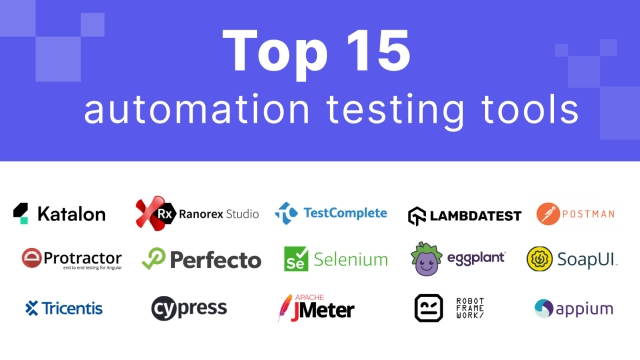
Revolutionizing Testing: The Power of Rapid Test Automation Tools

In the dynamic landscape of software development, the demand for efficient testing processes continues to grow exponentially. Businesses are under constant pressure to deliver quality products while accelerating their time-to-market. In this scenario, Rapid Test Automation and Test Automation Tools have emerged as indispensable assets for organizations striving to streamline their testing procedures and enhance overall product quality. By harnessing the power of automation, teams can achieve significantly faster test cycles, improved test coverage, and ultimately, boost their confidence in deploying reliable software solutions.
Benefits of Rapid Test Automation
In the fast-paced world of software development, time is of the essence. Rapid test automation tools offer a significant advantage by streamlining the testing process and reducing the time required for testing cycles. This leads to quicker identification and resolution of defects, ultimately accelerating the overall development timeline.
Aside from speed, another major benefit of rapid test automation is enhanced test coverage. These tools allow for the creation of a wide range of test cases that can be executed efficiently and consistently. This increased test coverage helps in uncovering more issues and ensures the robustness of the software under test.
Furthermore, rapid test automation tools contribute to cost savings by optimizing resource utilization. By automating repetitive and time-consuming testing tasks, teams can allocate resources more strategically, focusing on more complex and high-value testing activities. This not only reduces manual effort but also minimizes the risk of human error, resulting in higher quality software deliverables.
Popular Test Automation Tools
There are several popular test automation tools available in the market today that are designed to streamline the testing process. These tools offer a wide range of functionalities to help automate various testing scenarios efficiently.
One such tool is Selenium, a widely used open-source automation tool that provides a platform for automating web applications. Selenium allows testers to write test scripts in various programming languages and supports multiple browsers, making it a versatile choice for automated testing.
Another popular test automation tool is Katalon Studio, which offers a comprehensive set of features for automated testing. Katalon Studio includes a rich set of built-in keywords and plugins that enable testers to create robust automated test cases quickly and easily.
Low Code Test Automation Tools
Best Practices for Successful Test Automation
Implementing successful test automation requires careful planning and execution. It is crucial to start by identifying the most critical test cases to automate, focusing on achieving maximum coverage while ensuring efficiency. Prioritize tests that are repetitive, time-consuming, and prone to human error.
An essential aspect of successful test automation is maintaining a scalable and reliable test automation framework. This involves structuring your test scripts in a modular and reusable format, allowing for easy maintenance and updates as the application evolves. Additionally, incorporating version control tools and continuous integration practices can streamline the testing process and ensure consistent results.
Lastly, continuous evaluation and optimization of your test automation strategy are key to long-term success. Regularly review and update test scripts based on changes in the application and business requirements. Additionally, leverage analytics and reporting tools to identify bottlenecks in the automation process and make data-driven decisions to enhance the overall efficiency and effectiveness of your testing efforts.



